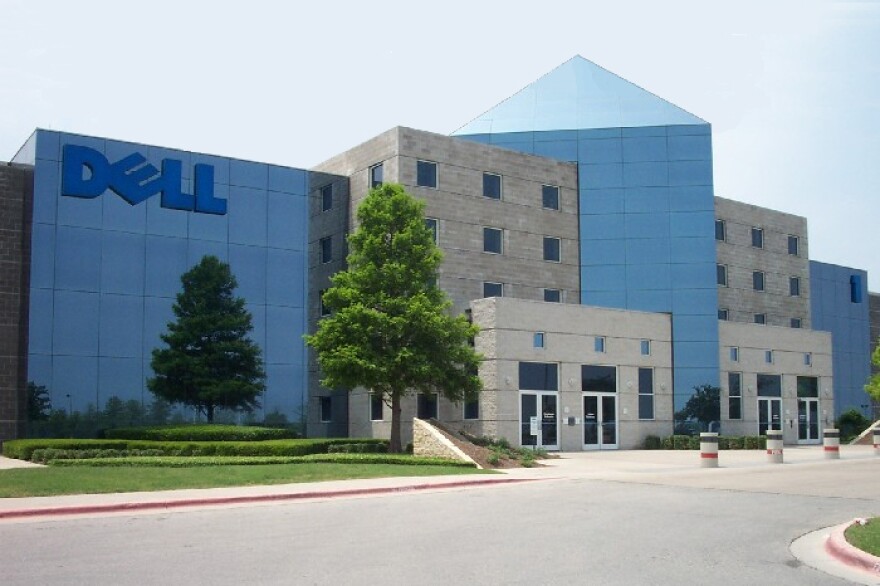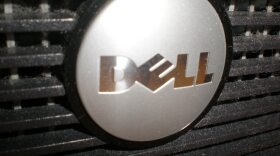Update: This article has been edited to correct when Larry Stern saw fliers for Dell on the UT campus. It was not 1981, but some point later in the 1980s.
Dell says that recent talk of a buyout is only speculation, but there’s still a whole lot of speculating going on, including about how a possible deal might work, and what it might mean for Austin.
Standing outside an Apple store in north Austin with a new MacBook Air under his arm, Larry Stern recalls Dell in its early days in the 1980s, when Stern was a student at the University of Texas.
“I remember seeing some of the original fliers, in Dobie and on campus, where you’d pull these little tabs off a piece of paper if you were interested in getting a cheap computer,” Stern said.
He says he wishes he’d bought stock back then, so he could have become a "Dellionaire" -- the name for investors made wealthy by Dell’s success. Customers loved Dell, and competitors copied it. It was flying high in the early 2000s.
But by 2008, the business had started to sour. Dell stock crashed from $25 a share to around $10, where it’s remained for years. That is, until about 10 days ago, when rumors emerged that Michael Dell, along with Microsoft and the private equity firm SilverLake, were planning to buy the company back. Together, they’d take Dell private.
As a private company, Dell would have to answer to no one but its three owners. No more Securities and Exchange Commission reports or stockholder briefings or analyst conference calls.
“Dell’s volume went down 20 percent in the PC space last year,” said John Doggett, a senior lecturer at UT’s McCombs School of Business. “And when everybody saw that they said, 'holy crap, the company’s falling apart.' If it’s a private company, they don’t have to tell anybody that.”
Doggett says another reason Dell may be considering taking the company private is that its stock price is so low right now. Dell could scoop up the company on the cheap and run it the way he wants to. But that could mean more job losses at the company’s Round Rock headquarters, where employees have seen at least two rounds of layoffs since 2008.
“Most of us who look at Dell expect that if the company goes private, Dell will continue the layoffs that have been going on since August of last year, but there will probably be much larger layoffs because it’s a private company,” Doggett said.
Many investors oppose taking Dell private, because they bought company stock at a much higher price than it’s at now. If Michael Dell buys the company, they’ll be forced to sell their shares at a loss.
Jose Raul Vasquez, a financial blogger, is one of those investors. He said that not only would Dell get the company cheap, he’d also get a bigger piece of it than the 16 percent he now owns.
“If he goes private, his ownership goes up to much more,” Vasquez said. “Say 30, 35 percent to Michael Dell, one-third to Microsoft, and the other third to the private equity firm. Only three big shareholders take the whole company.”
Vasquez thinks that after a few years as a private company, Dell could go public again with an IPO. But instead of creating more Dellionaires, that would make more millions for Dell. Michael Dell.



